www.alburyvineyard.com Silent Pool, Shere Road, Albury, Surrey GU5 9BW
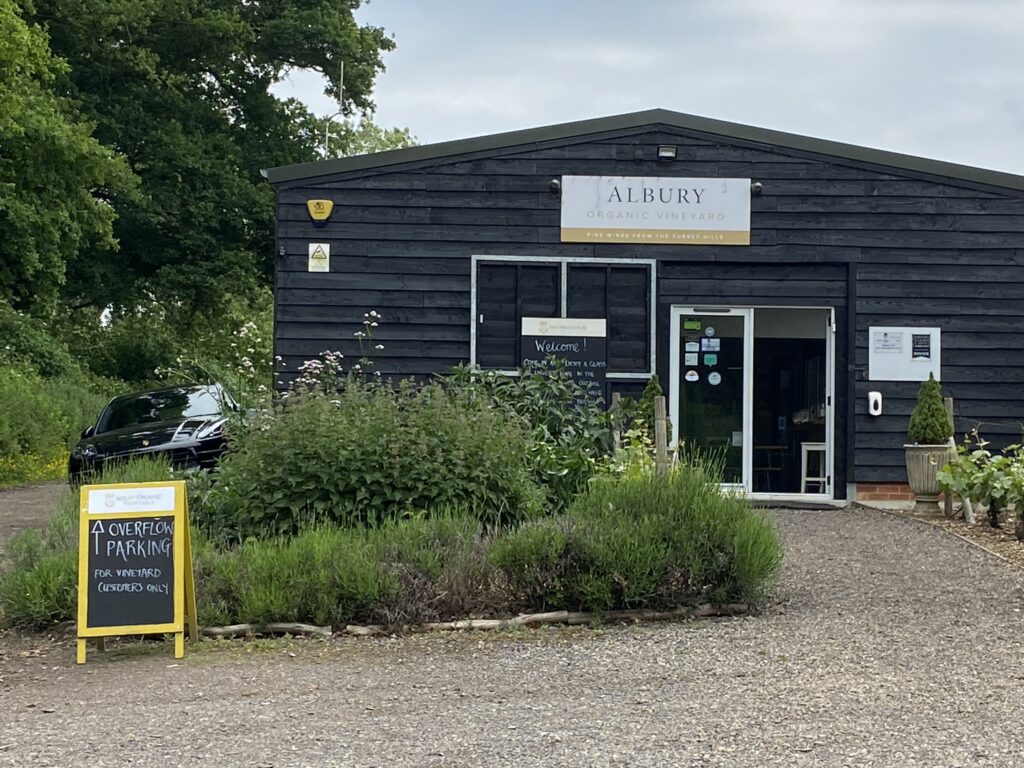
Located in the pretty Surrey Hills countryside, Albury consists of just 13 acres of land leased from the Duke of Northumberland’s Albury Estate. First planted in 2009 this organic and biodynamic vineyard focuses on producing sparkling wines.
The experience
Our tickets cost £25 each for a 90-minute tour of the vineyard with George, one of the small team of staff, followed by a tasting. Study shoes are recommended as the tour consists of a walk right around the field of vines. A £5 discount is offered on a bottle of sparkling wine purchased from the shop with each tour ticket.
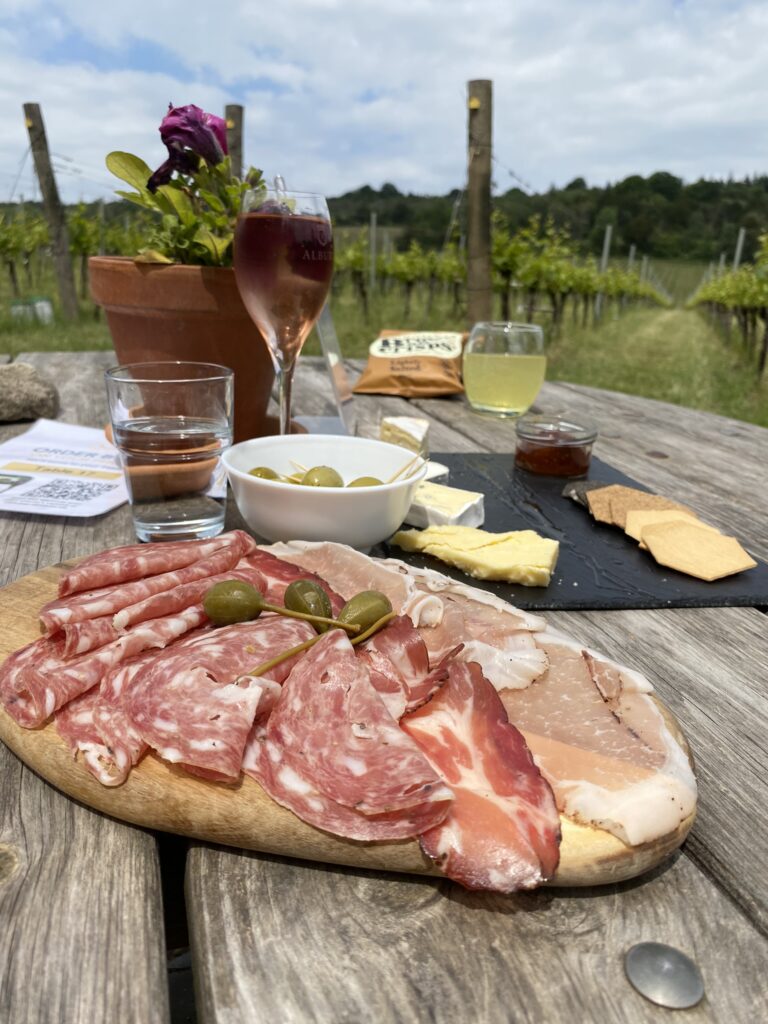
As we’d arrived early, we decided to order some food – the charcuterie and cheese platters are all made with locally sourced ingredients. We sat outside admiring the view of the vines and enjoying a glass of Albury wine with our meal prior to the tour.
Albury’s 21,000 vines make about 25,000 bottles of wine per year. It is both an organic and biodynamic vineyard where sustainability and biodiversity are vital, although low levels of permitted sulphites are used in the wine making process as they aid stability and reduce the risk of bacterial spoilage. Biodynamic principles mean that the vineyard must be self-sustaining; treated with herbal preparations; and planting, pruning and harvesting are timed in accordance with planetary rhythms. Albury, like many eminent vineyards worldwide, believe biodynamic viticulture leads to a better quality wine.
The site was specifically chosen by the owner due to its South-facing sheltered aspect and chalky soil – the same chalk that runs under the channel to the Paris basin and Champagne region in France.
George told us that English vineyards had started with the German grape varieties back in the 80s/90s but had had much more success with the sparkling wine varieties. While climate change has raised temperatures overall, it has also led to more unsettled weather patterns and in France in particular, they are experiencing more extreme frosts in spring – which can negatively impact grape production. At Albury they have a weather alert system so that if temperatures drop below freezing one of the team will go out to the vineyard to light large candles around the vines – they don’t produce heat but provide a pocket of air circulation which prevents frost from settling.
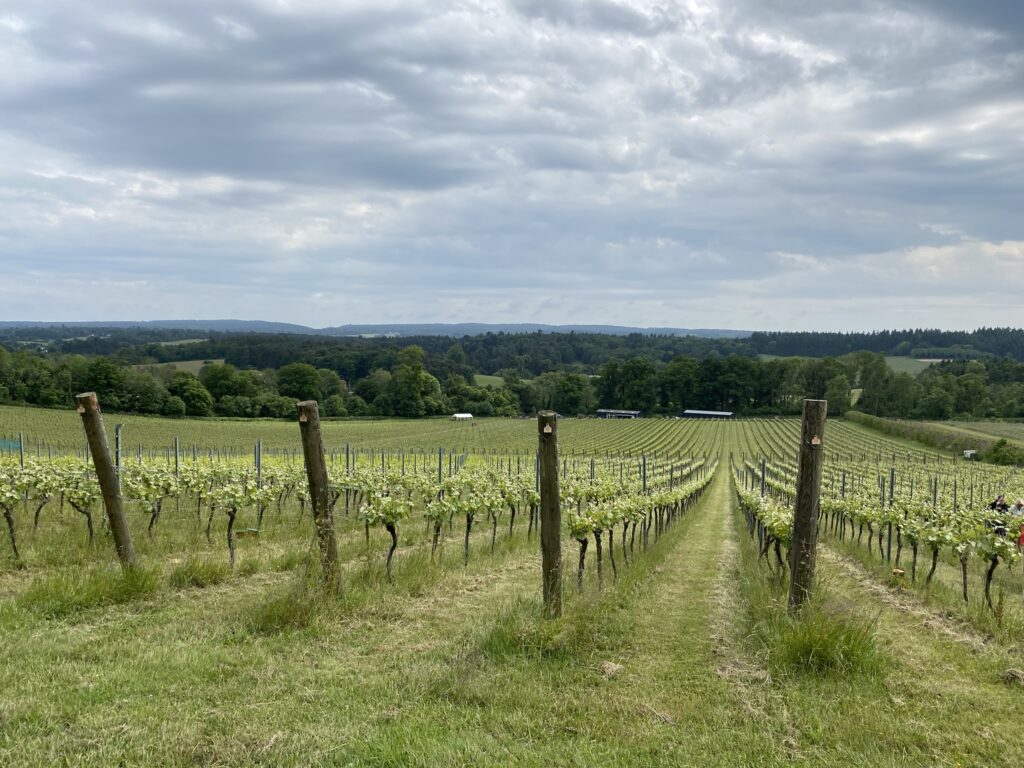
Albury grows Chardonnay, Pinot Noir, Pinot Meunier, Pinot Gris and Seyval Blanc. The vines are neatly spaced 2 meters apart to allow for mechanical harvesting. The grass is mown to prevent excessive moisture, but wildflowers are encouraged. We were shown that Pinot Meunier has a distinctive downy appearance (Meunier is the French word for Miller – think flour!) while the Pinot Noir vines are quite green.
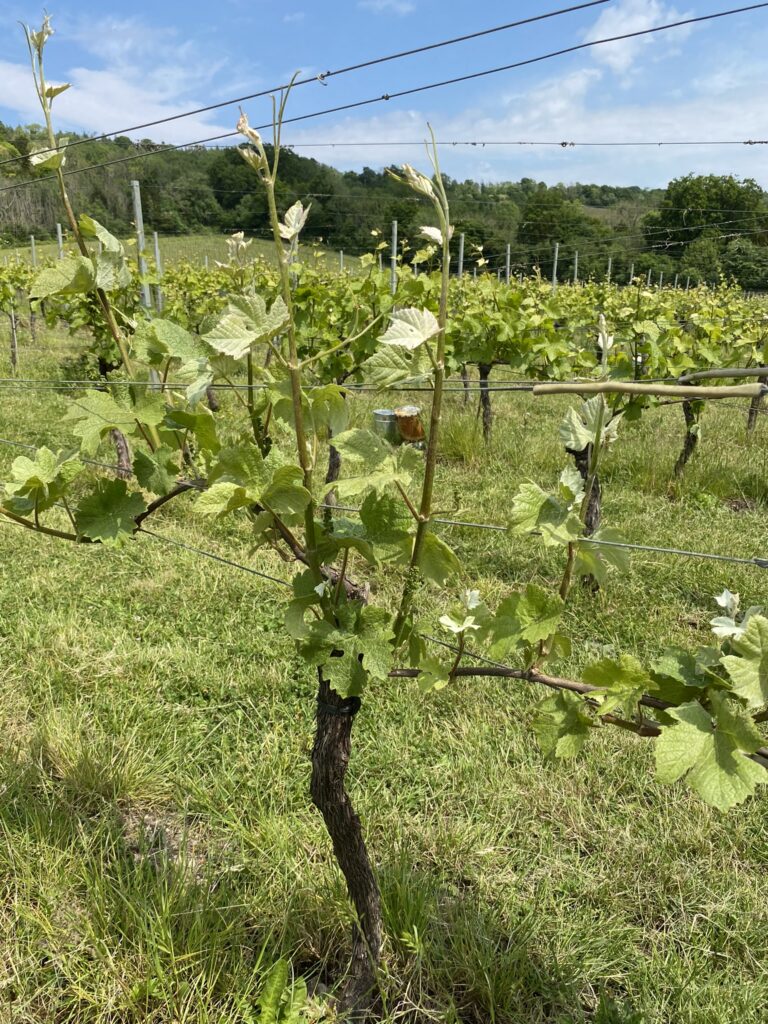
The vines are trained to ensure that the grapes are produced at a height that is easy to pick. Being above the ground minimises frost impact, but not sited so high that they do not benefit from the natural warmth generated from the ground as it warms in sunlight.
As we walked up to the top of the vineyard there was a perceptible difference in temperature due to aspect and the sheltered position. One can see that the vines in the flatter area in the middle of the field are not as well developed as those at the top – which have more exposure to sunlight.
We then descended to the tasting area where we tasted three Albury wines: Blanc de Blancs, Classic Cuvée and Silent Pool Rosé. George talked us through the winemaking process and also gave us a brief, potted history of English wine since Roman times!
Why you should visit
The tour gives a lot of information on the land, biodiversity and organic vineyard management. With a relaxed atmosphere, Albury is a pleasant place to sit and enjoy light snacks and a glass of wine amongst the vines. They host a number of events throughout the year (see website).
New learning fact
The best soil for growing vines is former agricultural soil (e.g. rapeseed which has built resistance to various diseases) or sheep/cow grazed land which has been naturally fertilised. Former forestry areas are unsuitable due to funguses in the soil.
Recommended wines to try
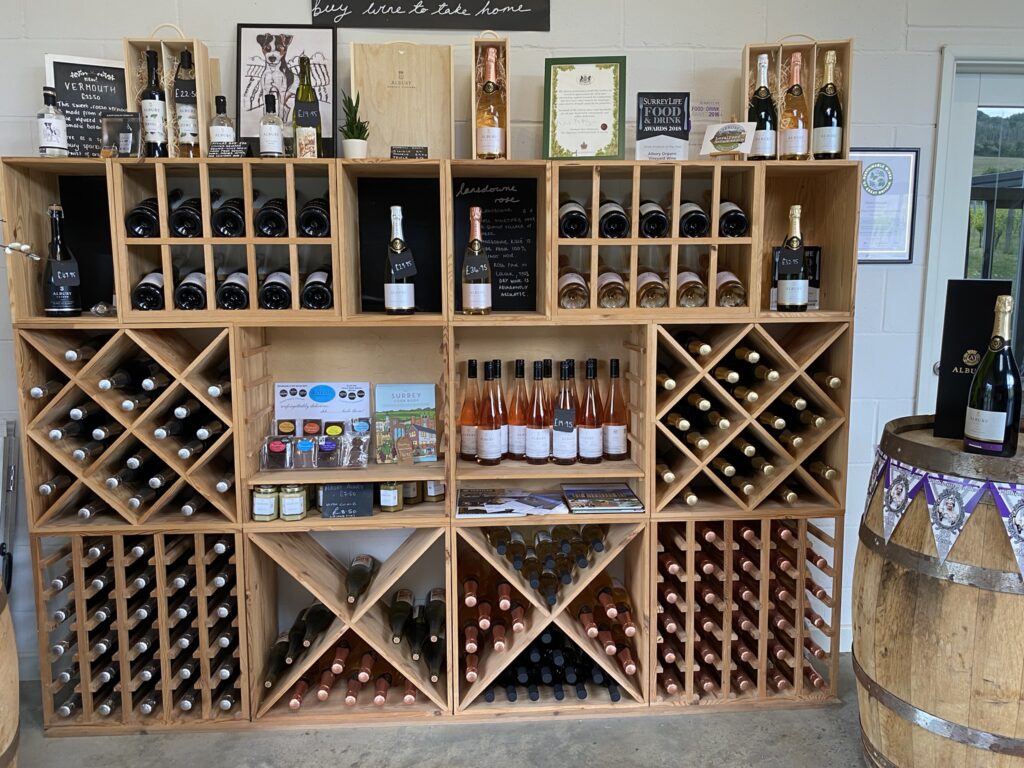
Silent Pool Rosé: The first vintage of this wine in 2011 was served on the Royal Barge for the Queen’s Diamond Jubilee! Albury struggled to ripen their grapes in 2021 so this rosé, made from 100% Pinot Noir grapes, has been through malolactic fermentation to reduce acidity and make the wine softer and more creamy. It has aromas of strawberries and cream, raspberries, redcurrants and blossom. Off dry with medium body and low alcohol at 10.5%.
Blanc de Blancs: a good NV fizz made with Chardonnay and Seyval Blanc. Lemon, blossom and herbs on the nose, with quite pronounced apple and elderflower aromas and a little toastiness from the “Great British Classic Method” – wording they obviously devised themselves! Medium gold and a moderate mousse. Crisp, dry and refreshing on a very hot day! Full of zestiness – refreshing! Nice long lemony finish.
Biodynamic Wild Ferment 2017: this annual limited release biodynamic sparkling wine is fermented in a concrete egg using wild yeasts (i.e. those naturally in the atmosphere) from the vineyard. It has plenty of body and a nice rounded mouthfeel, with pronounced aromas of apple, blossom, elderflower and brioche, and a long finish.
Bianco Vermouth: Albury make this with fruit that has ripened insufficiently to make wine. This one is made with Sauvignon Blanc and Pinot Noir grapes. The distillers fortify the wine and add botannicals to make the vermouth. With lots of orange, mint, lime and oak aromas this is good used to make a classic gin or vodka martini, but also excellent as a spritz with sparkling wine.